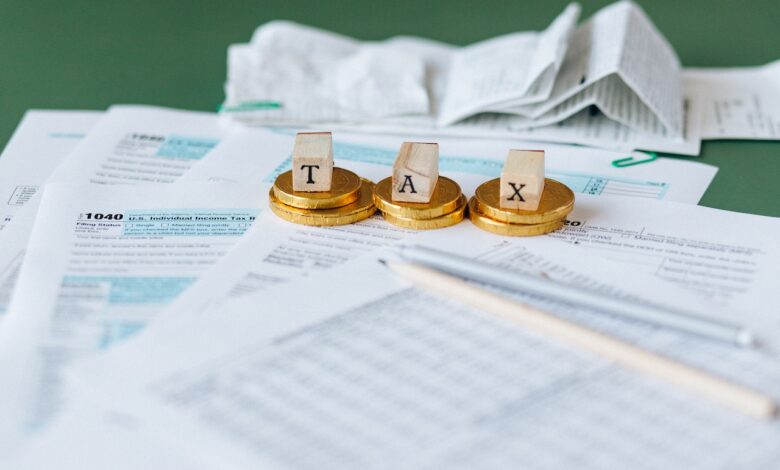How to Apply for a Certificate of Tax Residence in Italy

How do you determine a company’s tax residence? Identifying tax residence is crucial if you want to avoid the phenomena of foreign-dressed businesses. You must distinguish the residence of partnerships and the habitation of joint stock companies clearly from the outset. This guide’s goal is to provide readers with a comprehensive understanding of the Italian tax residence certificate. It also includes its benefits as well as techniques for applying for it.
What is an Italian Residence Certificate?
The certificate contains the applicant’s name, date of birth, and place of birth. Moreover, it has the residential address and the town of residence. As a result, it attests to the applicant’s status as a resident of Italy.
You can get the tax residence certificate at the Italian Tax Agency. Moreover, this certificate attests that the firm or individual in question has their tax domicile in Italy. This certificate may be required to take advantage of the benefits offered by the double taxation agreement in place with the foreign state in which the taxpayer earned income in a given year by submitting it to its tax administration.
Who is Eligible to Apply for Tax Residence Certificate?
All residents may seek this certificate, as well as residents who are not themselves persons. They include corporations, businesses, nonprofit organizations, collective investment plans, and pension funds. The certificate may only be sought by partners who are residents of Italy in the event of partnerships. Furthermore, they are important in other instances of “fiscally transparent” companies.

Read: Register a Foundation in Germany: Company Registry Guide
Why do you need the Certificate of Tax Residency?
The Italian Tax Agency accepts applications for the tax residency certificate. It also accepts those from foreign countries where the taxpayer earned income before. To enjoy international treaties against double taxation on income, a certificate is necessary. But, you will get your single tax residency certificate. This is if the certificate has types of income earned in the same foreign state. And or if it covers the same convention.
Which Documents will you Need?
You’ll need the following to apply for a certificate of residence:
- Your current Dutch passport or identification card.
- Proof of address. A recent bank or utility bill with your name and address or a rental agreement with your name and address might serve as proof of registration. However, they should come with your municipality if this option is not available in your nation.
- Residency permit, work permit, or student visa, for example, is documentation that you are a legitimate resident of the nation in issue.
How to Apply for the Tax Residence Certificate
Any territorial office of the Italian Tax Agency such as the Italian Trade Registry accepts applications. In actuality, the Italian Tax Agency makes the certificate template, which was authorized by the Director of the Tax Agency on July 10, 2013, online available.
You need to fill fields below in the application form
- Status- If you are the owner, a representative, or have another position for the firm, you should state it in this part.
- Country- You must mention the name of the foreign nation where the money comes from and where the certificate shall be sent in this part.
- Income- The form has a table. In the table fill all the details of your income. Note that it is important to identify the type(s) of revenue you get that is subject to the international double taxation conventions in this part.
You must pay a special tax of €3,10 must for each copy before the certificate you get. Payments can be made at bank counters and post offices using Form F23 and tax code 964T. An alternative is to utilize a revenue stamp in the same amount.
Read: Step By Step Guide: Opening a VOF in the Netherlands
Tax residence, Personal Residence, Tax Domicile, and A.I.R.E.
You need to know all four concepts and be able to distinguish them in order to calculate the tax burden in Italy:
- Where you pay taxes depends on your tax residency. Personal home and tax residence typically match. However, there are situations where an individual has their tax residence in one nation and their personal abode in another.
- The personal residence, which is determined by the inscription in the municipal archives, is the one where you typically dwell.
- Your domicile is the legal address at which you authorized the Revenue Agency to send you all correspondence. It generally matches the private dwelling; however, it might possibly be distinct.
- A.I.R.E. is an Italian Registry of Residents Abroad. If you go overseas, you must register with AIRE to avoid being an Italian resident. If you live abroad for at least 183 days each year, you will be taken from the list of natural persons residing in Italy.

However, you must concentrate your economic activities in the foreign nation and dwell outside of the Italian State for at least 183 days per year to be designated a tax resident there.
Read: Startups; How to Always Keep A Tax-Ready Accounting System
Tax Residency Certificates Based on a Foreign State’s Model
Additionally, there may be instances where the foreign tax administration requests that the Agency fill up. And they also sign their own ad hoc form. Sometimes the Agency may verify tax residency in Italy using the foreign form. The form created by the foreign administration is identical to the Italian form. This applies to both the direct application of the preferential rate and the request for a refund of the foreign tax made by an Italian taxpayer to a member state of the European Union or a convention partner state.
The Taxpayer Must State Their Normal Residence in Italy as Their Tax Residence.
This means that a property or rental unit is not always the basis for establishing a permanent habitation for tax purposes. For the purposes of determining tax residency, a person’s permanent residence is their place of unrestricted availability, regardless of ownership or possession, at all times. For the purposes of determining tax residence, for example, it is not significant to dwell in a home owned by a foreign nation, but it is relevant to visit your more than 183 days at your partner’s home in Italy without restriction. similar to how the ruling cited above was handled.
Related Articles you Might be Interested in:
How to Get a Business Credit Report in EU
Step and Step Guide on How to Proof your Italian Address
5 Reasons you Should Register a Business Branch in Germany




